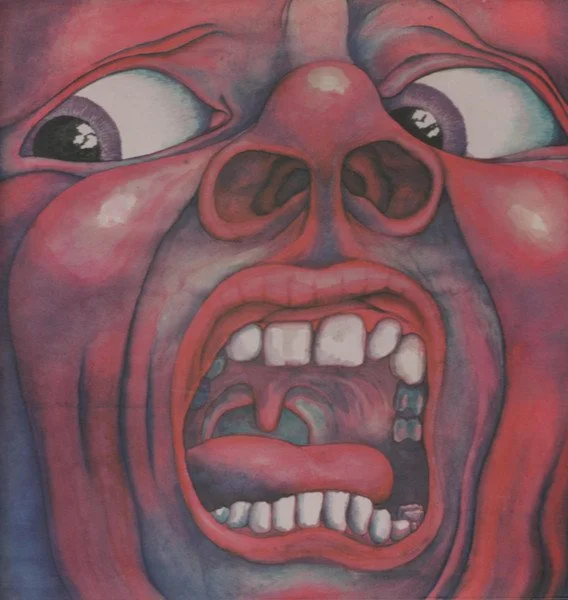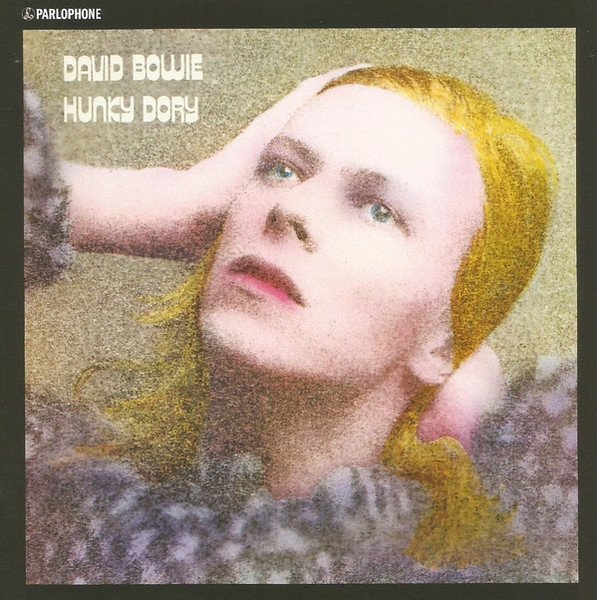When: Released October 10, 1969
Why? I’ve never heard a King Crimson song, and this, their first album, is considered a foundational album in the development of progressive rock and a significant influence on early Yes and Genesis. Also, I’ve been seeing the eye-catching cover of this album in racks since I was a young teenager.
What? Five songs, averaging about nine minutes each (lasting 44:28), that blend pop, light rock, jazz, classical, and experimental sounds.
First Impressions: With opener “21st Century Schizoid Man,” we’re given a comprehensive introduction to what the rest of this album holds: Lyrically meaningful songs accompanied by lengthy (and often experimental) instrumental passages.
These are not throwaway pop songs; the lyrics throughout focus on war, social injustice, humanity’s search for meaning. The musicianship on display is remarkable to the point of being virtuosic, with drummer Michael Giles, in particular, demonstrating incredible technical skill on every track.
Personally, though, I tired of the way the band would essentially finish an actual song (i.e., the part with lyrics) and then continue down often unrelated, jazz-based instrumental excursions for five or more minutes. I physically reached the limit of what I could take when the hauntingly beautiful “Moonchild” devolved into maybe 8 minutes of unnerving “instruments as sound effects” experimentation that offered nothing I could call music and filled me with anxiety. I had to skip the last 5 minutes.
So? I realize that King Crimson’s blend of pop/rock and freeform jazz is one of the hallmarks of progressive rock. While I recognize the musicianship required to conceive and play such challenging music, the fact is that I prefer songs. And when it comes to instrumental breaks or even extended musical explorations, I respond best to melodies and structure; I want them to mean something. So when King Crimson delivered songs, I enjoyed them very much. But because of how this material is presented—with many minutes-long instrumental breaks and lengthy instrumental endings—I don’t see myself wanting to sit through this album again.




